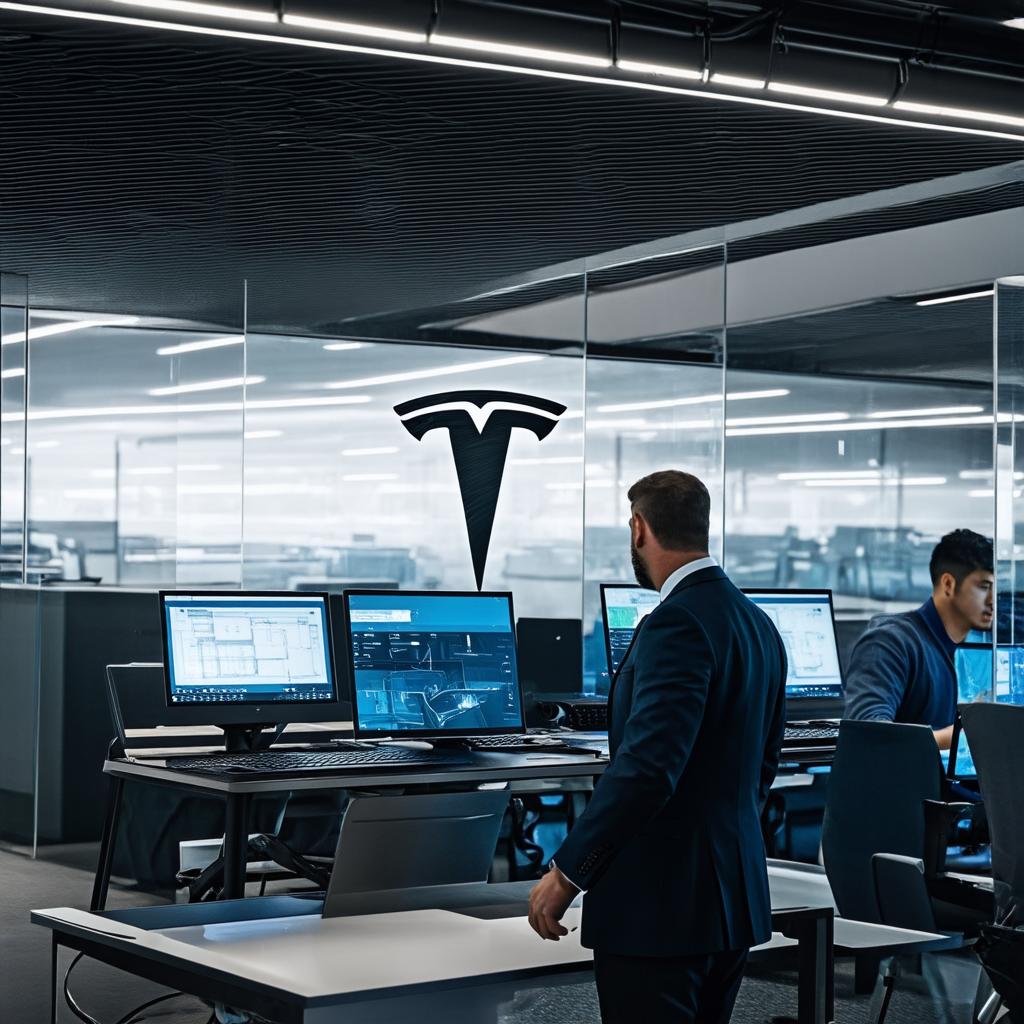Is Tesla a publicly traded company?

Tesla, the American electric vehicle manufacturer founded by Elon Musk, is one of the most talked-about companies in the world. Many people are curious about its status as a public or private company and whether it’s worth investing in. In this article, we’ll explore the current state of Tesla’s ownership and financials to help you make an informed decision.
Introduction
Tesla, founded in 2003, has made significant strides in the electric vehicle industry. It’s one of the largest automakers in the world, with a market cap of over $1 trillion as of June 2021. Many people have asked if Tesla is a publicly traded company or not. In this article, we’ll delve into the topic and explore
Tesla’s ownership structure
, stock performance, and financials to help you understand whether it’s worth investing in.
What are public companies?
Public companies are firms that offer shares of their ownership to the public through stock exchanges such as the NASDAQ or NYSE. These companies are required to report their financials to regulators, which allows investors to make informed decisions about whether to buy or sell their stocks. Public companies can raise money from investors by issuing new shares, and they must comply with various regulations to protect investors and maintain transparency.
What are private companies?
Private companies, on the other hand, are firms that do not offer their ownership to the public. These companies are usually owned by a small group of people or families, who may have other business interests. Private companies often have more flexibility in how they operate and can be more agile in responding to market changes. However, they also face less scrutiny from regulators, which means that investors must do their own due diligence before investing in them.

Is Tesla a public company?
Tesla is considered a publicly traded company, even though it’s not listed on any traditional stock exchanges like the NASDAQ or NYSE. Instead, Tesla is listed on the Over-the-Counter (OTC) market, which allows companies that don’t meet the requirements for listing on a major exchange to trade their stocks publicly.
Tesla went public in June 2013, when it raised $40 million by selling shares of stock to investors. Since then, Tesla has continued to sell its shares through various means, including secondary offerings and private placements. As a result, Tesla’s stock is widely held by individual investors, mutual funds, and other institutional investors.
Tesla’s ownership structure
As a publicly traded company, Tesla is owned by its shareholders. These shareholders hold a portion of the company’s ownership, which gives them a say in how the company is run through voting on key decisions such as electing board members and approving new contracts. The majority of Tesla’s shares are held by individual investors, with institutional investors like mutual funds and hedge funds also holding a significant percentage.
Tesla’s ownership structure
is unique in that it has both a controlling shareholder and a large number of minority shareholders. Elon Musk owns roughly 38% of Tesla’s outstanding shares, making him the company’s controlling shareholder. However, Tesla also has a large number of minority shareholders who own less than 1% of the company. These minority shareholders are primarily institutional investors such as mutual funds and hedge funds.
Tesla’s financial performance
As a publicly traded company, Tesla is subject to various financial regulations that require it to report its financials to regulators. Tesla’s financial reports provide insight into the company’s financial performance, which can be used by investors to make informed decisions about whether to buy or sell their shares.
In recent years, Tesla has experienced rapid growth in both revenue and profitability. In 2020, Tesla’s revenue grew by over 43% compared to the previous year, reaching a record $31.5 billion. The company’s net income also increased by over 300% to $721 million.
In addition to its financial performance, Tesla has also been recognized for its innovative products and sustainable practices. In 2021, Tesla was named the most valuable car company in the world by Forbes, surpassing traditional automakers like General Motors and Toyota. The company has also received numerous accolades for its electric vehicles’ safety features and low environmental impact.
FAQs
Q: Is Tesla a publicly traded company?
Yes, Tesla is considered a publicly traded company even though it’s not listed on any traditional stock exchanges like the NASDAQ or NYSE. Instead, Tesla is listed on the Over-the-Counter (OTC) market.
Q: Who owns Tesla?
Elon Musk owns roughly 38% of Tesla’s outstanding shares, making him the company’s controlling shareholder. However, Tesla also has a large number of minority shareholders who own less than 1% of the company, primarily institutional investors such as mutual funds and hedge funds.
Q: What is
Tesla’s financial performance
like?
In recent years, Tesla has experienced rapid growth in both revenue and profitability. In 2020, Tesla’s revenue grew by over 43% compared to the previous year, reaching a record $31.5 billion. The company’s net income also increased by over 300% to $721 million.
Q: Is Tesla worth investing in?
Whether or not Tesla is worth investing in depends on your individual financial circumstances and investment goals. It’s important to do your own research and consider seeking advice from a financial professional before making any investment decisions.
Conclusion
Tesla, despite not being listed on any traditional stock exchanges, is considered a publicly traded company by many people. The company has experienced rapid growth in recent years, with both revenue and profitability increasing significantly.
Tesla’s ownership structure
is unique in that it has both a controlling shareholder and a large number of minority shareholders. As an investor, it’s important to do your own research and consider seeking advice from a financial professional before making any investment decisions about whether or not Tesla is worth investing in.